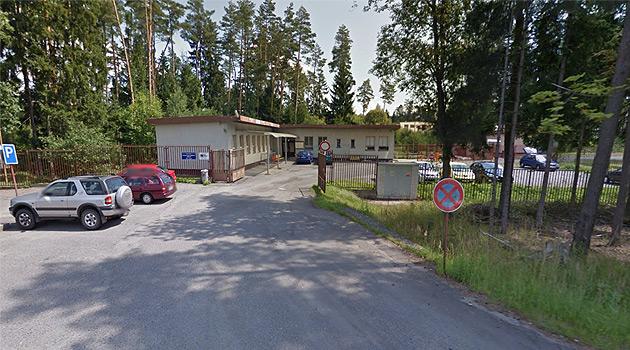Czech Republic deporting Afghan family whose case came before the European Court of Human Rights

The Czech Republic will be releasing an Afghan family from the Bělá-Jezová detention facility in the Mladá Boleslav district after the European Court of Human Rights in Strasbourg called on the Czech authorities to transfer them to a different facility. The Czech Interior Ministry, however, says its decision is not in reaction to the Court judgment.
There are no longer any grounds on which the family can be detained and they will, therefore, be deported from the country, the ministry told the Czech News Agency yesterday. The Strasbourg court had called on the Czech Republic to relocate the family by midnight today.
The motion to issue a preliminary injunction in the family’s case was sent to the court by the Organization for Aid to Refugees (OPU). According to the Czech Interior Ministry, the Czech Police decided to release the family from the detention family at the family’s request.
"They are being released because the reasons to detain them for the purposes of implementing their administrative deportation no longer obtain," Hana Malá of the Interior Ministry’s press department told the Czech News Agency. The foreign nationals do not yet have any substitute travel documents and their identities have not been verified.
"The Aliens Police will continue to take steps for the purpose of implementing their administrative deportation," Malá said. After the family are released they will be given a deadline by which to leave the Czech Republic.
In some cases foreign nationals who are deported by the Czech Republic are transported to the border by a police escort. OPU told the Czech News Agency it has not yet received any information about the deportation.
Martin Rozumek of OPU said deportation to Afghanistan would be the worst thing that could happen to the family. He also said that the Czech Police, unlike police in other European states, issue administrative deportations for people from Afghanistan but do not usually arrange for their transfer.
"Should they be deported to Austria then it won’t be a tragedy," Rozumek told the Czech News Agency. The Strasbourg court had called on the Czech authorities to transfer the family to a facility that does not violate Article 3 of the European Convention on Human Rights, i.e., the ban on torture and inhuman or degrading treatment or punishment.
The Court also called on the Czech Government to provide it with all of the documentation and information that exist about the conditions at the refugee center in Bělá-Jezová at the time the family was detained there and to do so within two weeks. The Court is interested primarily in the capacity of the facility, the number of persons detained there, the hygienic conditions and the living conditions for children there.
The Czech Interior Ministry said it wants to demonstrate the state of the Bělá-Jezová facility to the Court through documentation and reports. "The conditions in the facility are humane and we are constantly working to improve them when it comes to families with children staying there," Malá said.
The family, according to OPU, traveled to the Czech Republic from the Afghan province of Kunduz, which is under Taliban control. They made it to the Czech Republic by traveling through Hungary and their destination was Germany.
The Czech Aliens Police, however, arrested the family and placed them in detention for the purpose of their administrative deportation back to Afghanistan. The family includes the couple’s three children, ages five, six and 16, as well as the mother’s 15-year-old brother.
One of the couple’s sons has epilepsy and OPU asserts that he is not receiving the medical care he needs in the Bělá-Jezová facility. The living conditions for asylum-seekers detained in that particular facility have been criticized for some time by non-profit organizations and many others.
The Czech Ombudswoman, Anna Šabatová, says people at the facility are living in worse conditions than Czech prisoners do. Czech Justice Minister Robert Pelikán also called the facility "worse than prison".
UN High Commissioner for Human Rights Zeid Ra’ad Zeid Al-Hussein has also expressed his concern over the facility. Bělá-Jezová has room for 700 people and 219 are currently being detained there.